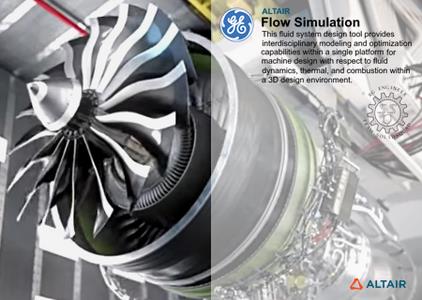 Free Download Altair Flow Simulator 2023.0 | 504.6 mbOwner:
Free Download Altair Flow Simulator 2023.0 | 504.6 mbOwner:Altair
Product Name:Flow Simulator
Version:2023.0
Supported Architectures:x64
Website Home Page :www.altair.com
Languages Supported:english
System Requirements:Windows *
Size:504.6 mb
The software developer Altair is pleased to announce the availability of
Flow Simulator 2023.0 is the single, unified fluid system design tool/platform for GE Aviation's Thermal System design, Combustion, Lube/fuel systems, and externals teams. It is rooted in decades of practical usage and experience, with aerospace-quality level validation and verification.
Highlights
- More Heat Transfer Coefficient correlations.
- Functional Mock-up Unit (FMU) Export (BETA).
- Shutdown (low power at end of transient) Logic (BETA).
New Features
More Heat Transfer Coefficient Correlations
Eight additional HTC correlations are available to use with convection resistors in the thermal network. Use these new correlations for convectors not associated with a tube element.
The correlations include:
1. Gnielinski Combo for laminar and turbulent flow in a duct.
2. Heiles Open Fin Channel for forced convection in a rectangular fin channel with one open side.
3. Kercher Impingement for a square array of holes.
4. Florschuetz Impingement for a square array of holes.
5. Taylor Rotating Gap for an annular gap with one side rotating.
6. Electric Motor End Space Convection for the region between motor magnets, winding, and the end plates.
7. Fin Channel Free Convection for free convection in a rectangular fin channel with one open side.
8. Rotating Duct HTC for hollow shafts rotating about the shaft centerline.
HTC's are also now separated into categories for easier selection in the GUI. These eight new correlations are identified as "Builtin" in some of the GUI lists. Many new correlation inputs have an "AUTO" option which automatically retrieves the inputs from the attached elements or other inputs.
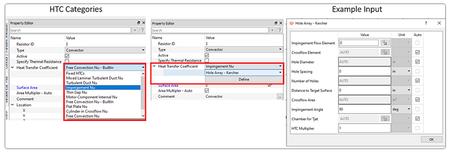
Figure 1. More HTC Correlations for Convectors
Functional Mock-up Unit (FMU) Export (BETA)
You can export an FMU from the GUI and use it with another program (for example, Altair Activate) that can import an FMU for solver coupling. The FMU is based on the Functional Mock-up Interface (FMI) version 2.0. The FMU contains the Flow Simulator model and an XML file that contains a list of input and output variables. Use the FMU to run the Flow Simulator model in steady state or transient. This feature is considered a BETA release as more testing is needed with other FMU importers.

Figure 2. FMU Export
Shutdown (Low Power at End of Transient) Logic (BETA)
The solver has "shutdown" logic to improve convergence during the very low power (and low pressure) conditions at the end of a transient mission for a gas turbine. Shutdown logic is applied after a user-defined shutdown time. The shutdown logic converts most elements to fixed flow elements to maintain the percent core flow for each element. Chamber pressures are scaled with cycle or boundary pressures. You can also set a minimum heat transfer coefficient. Use the minimum HTC for the entire transient, if needed.
This feature is considered a BETA release as more testing is needed with different shutdown cycles and Flow Simulator elements.
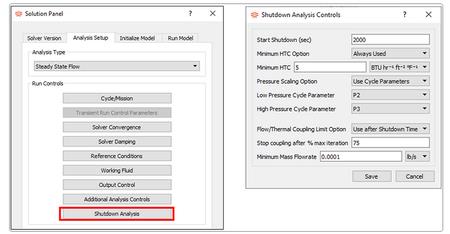
Figure 3.
Enhancements
Add Resistor Area Multiplier
An area multiplier option has been added to the three types of thermal resistors (conductor, convector, and radiator). The "AUTO" setting for the area multiplier automatically accounts for a tube element multiplicity factor by setting the area multiplier to the multiplicity factor on resistors that are in a series with the associated convector. For example, the area multiplier = 1.0 if the element's multiplicity factor = 1.0. The area multiplier can also be used for any purpose where a heat flow multiplier is needed (like additional area due to fins). The area multiplier is multiplied by the area in the resistor's heat flow equation.

Figure 4. Thermal Resistor Area Multiplier
Descriptionting Results Difference Improvements
In the GUI, the Tools > Compare Results function has been improved. You can Description color contours of the differences for several variables.
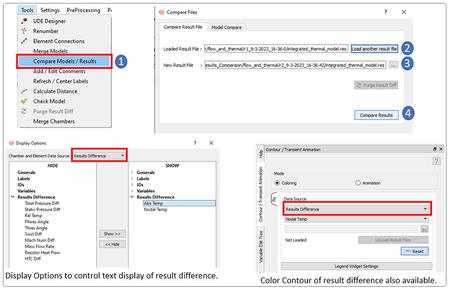
Figure 5. Results Comparison
NASA CEA Reaction Control
NASA CEA can return unexpected fluid properties for certain species. For instance, if ammonia (NH3) is sent to NASA CEA with a specified temperature and pressure, CEA returns properties for a mixture of NH3, H2, and N2. The properties can be significantly different than the properties for pure NH3. A new control option is now available to limit the species considered in the CEA equilibrium calculation. If the Limit Products option is used, CEA only considers the species received (that is, NH3 remains NH3).
The default isNo Limit, which means CEA returns the same properties as previous Flow Simulator versions.
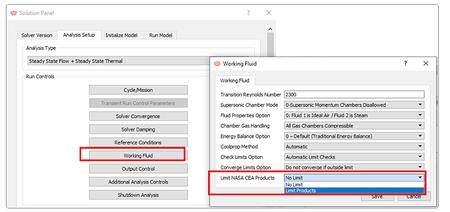
Figure 6. NASA CEA Reaction Control
Labyrinth Seal Pocket Chambers
Vortex chambers can now be associated with labyrinth seal pocket chambers. This is useful for post-processing and including the pocket temperatures in the thermal network. Display pocket pressures, temperature, and swirls along with the other chamber results. A convector attached to the pocket vortex chamber is an easy way to include the pocket temperatures in the thermal network.
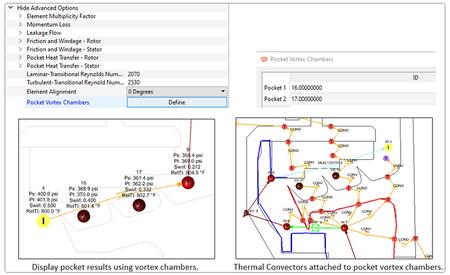
Figure 7. Labyrinth Seal Pocket Chambers
Unit Options for Analysis Setup Inputs
Several inputs in the Analysis Setup panel now have unit options. For instance, flow rate convergence criteria can now be set in kg/sec, or a cycle flow can be set using kg/sec.
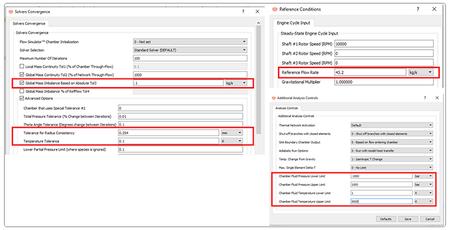
Figure 8. Units Options for Analysis Setup Inputs
Friction for Two-phase Flow in the Incompressible Tube Element
The incompressible tube element has a new friction factor option for two-phase flow. Previous versions used the homogenous approach where fluid properties of the two-phase fluid are used in the friction equations for a single phase. The two-phase friction correlation developed by Friedel have been added.
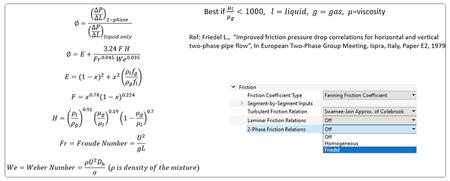
Figure 9. Friction Factor for Two-phase Flow in the Incompressible Tube
Known Issues
The following known issues will be addressed in a future release as we continuously improve software performance:
- The controller interface does not work with controllers that have two relations (For example: 1D table and a Python script in the same controller).
Resolved Issues
- Improved coupling of Advanced Tube and Incompressible Tube elements to thermal network convectors. Convectors now use a fluid temperature equivalent to a log mean temperature difference. Temperature results change if elements have large temperature increases and few stations.
- Fixed Labyrinth Seal (both Vermes and Tooth-by-Tooth) land rotation effects on swirl and temperature change. Only changes result if the land (side of seal without teeth) is rotating.
- Fixed Labyrinth Seal (both Vermes and Tooth-by-Tooth) temperature rise limit. The automatic temperature rise limit may have been too low for seals with many teeth (>~20). This has no affect on results for seals with moderate temperature rise.
- Fixed problem with a custom heat load applied to an Advanced Tube or Incompressible Tube. Flow Simulator now writes the proper line to the *.flo file. No effect on solver results.
- Multi-edit items fixed in the GUI. For instance, changing the units for many elements at once is now possible.
- The Autofill option of the cavity flows tab now fills the radii column correctly for labyrinth seals and FI Cdcomp elements with an exit radius different than the inlet radius.
- Fixed problem with units for tables that have more than 10 rows.
- Added missing "HTC Entrance Adder" input to the Advanced Tube element.
- Added some missing items from the model Import/Export file.
- Added missing results display items for some elements (For example: exit Mach Number for transition elements).
- Coolprop updated to the latest version (6.4.3). This is not expected to create any results differences.
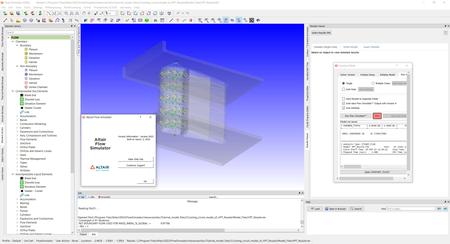
Flow Simulatoris a 3D design tool that provides interdisciplinary modeling and optimization for fluid and thermal systems within a CAD-integrated environment. System-level design has become increasingly critical as organizations are tasked with simulating complex duty cycles. Fast software solutions like Flow Simulator are needed to model an entire system, including rapid iteration concept modeling and understanding of system simulation and system behavior in applications such as rotating machinery design, electromobility, wind turbines, heat exchangers, and virtually anything that encompasses thermal management. Flow Simulator was originally developed byGE Aviationto serve as a fast flow network simulator for aircraft engines - simulating how an entire flight cycle would behave in the real world, from runway and take off to flight and landing. Since its inception, it has been used to simplify modeling for a variety of complex thermal systems applications, including healthcare, locomotives, and renewable energy.
Altair Flow Simulator - Integrated Thermo-fluid System Design
Altairis a global technology company that provides software and cloud solutions in the areas of simulation, high-performance computing (HPC), and artificial intelligence (AI). Altair enables organizations across broad industry segments to compete more effectively in a connected world while creating a more sustainable future.
TROY, Mich., Feb. 24, 2021 /PRNewswire/ -- Altair announced that it has acquired Flow Simulator from GE Aviation. Flow Simulator is an integrated flow, heat transfer, and combustion design software, which enables mixed fidelity simulations to optimize machine and systems design.
Buy Premium From My Links To Get Resumable Support,Max Speed & Support Me
Altair Flow Simulator 2023.0 Win x64 Torrent Download , Altair Flow Simulator 2023.0 Win x64 Crack Download , Altair Flow Simulator 2023.0 Win x64 Patch Download , Altair Flow Simulator 2023.0 Win x64 Serial Keygen Download
Comments











